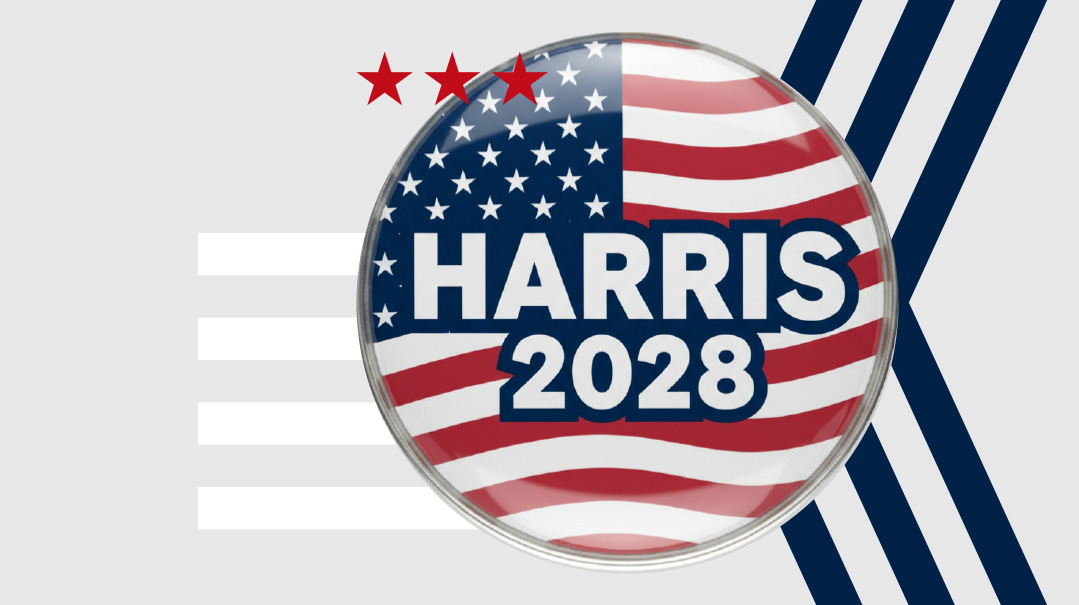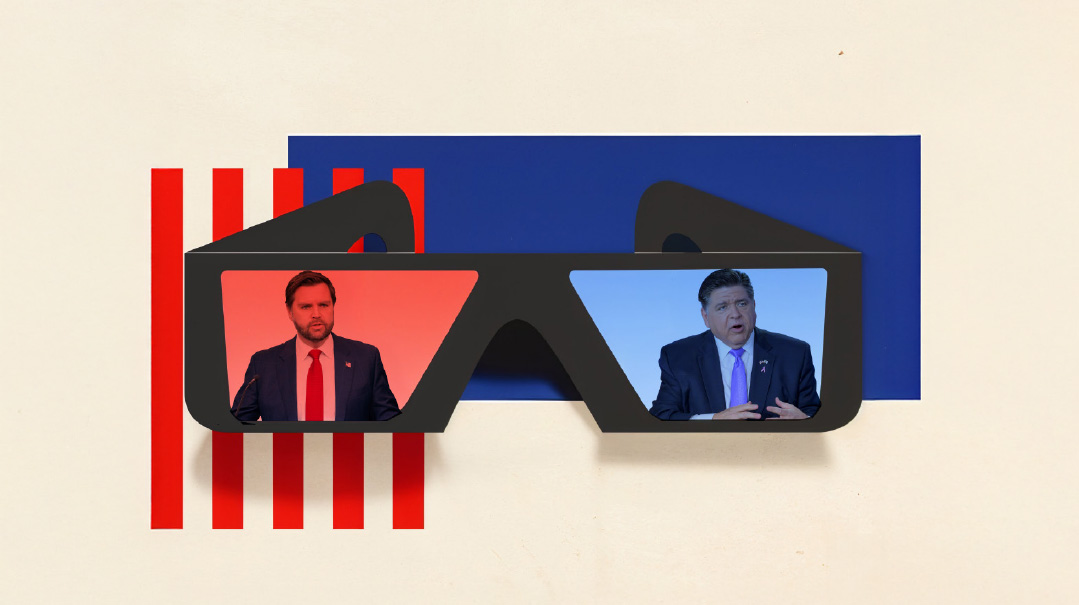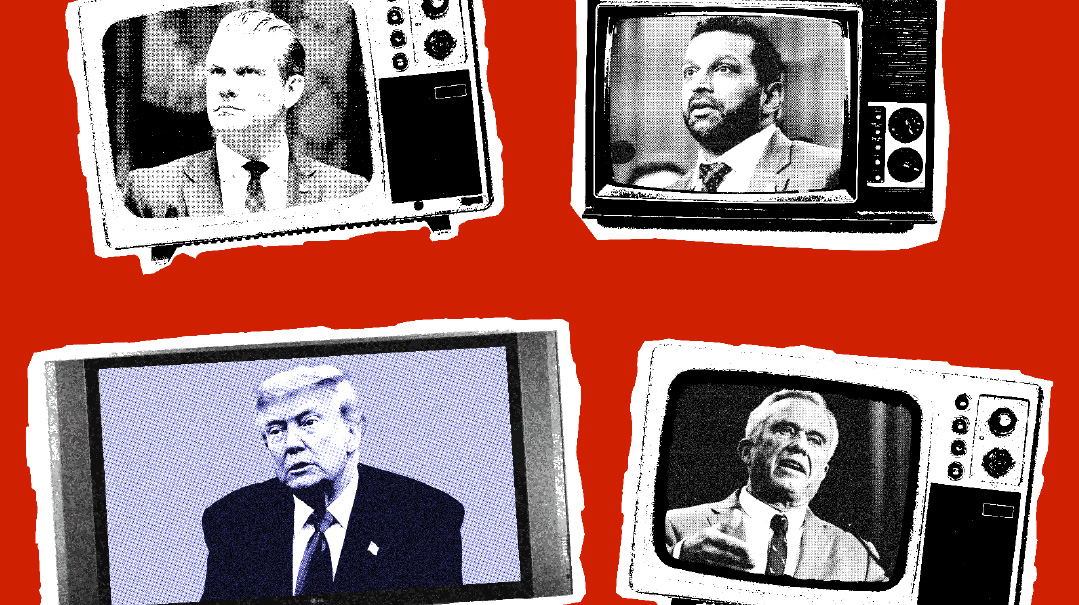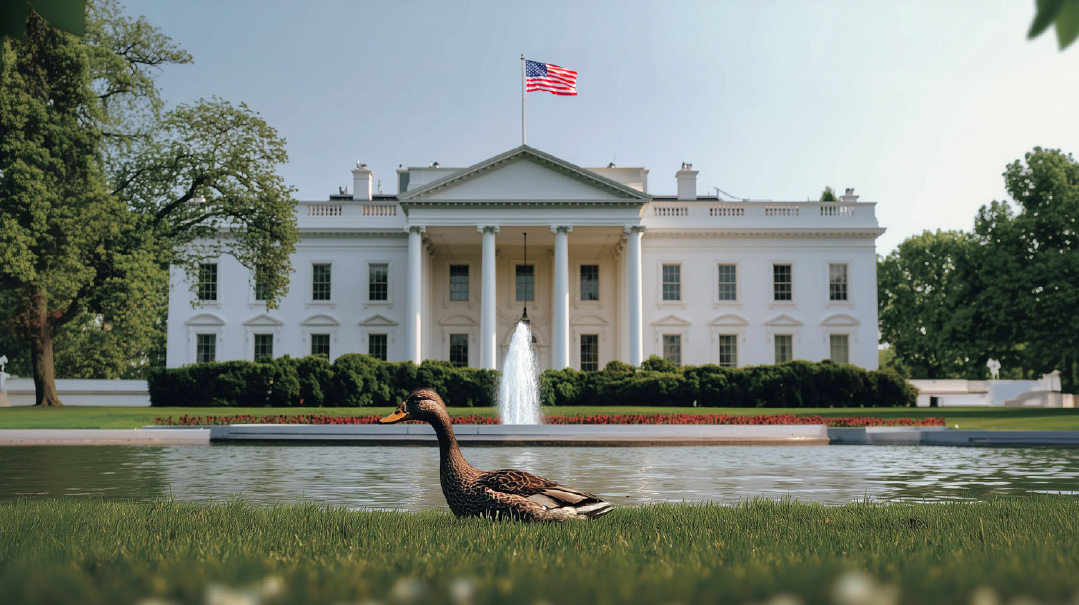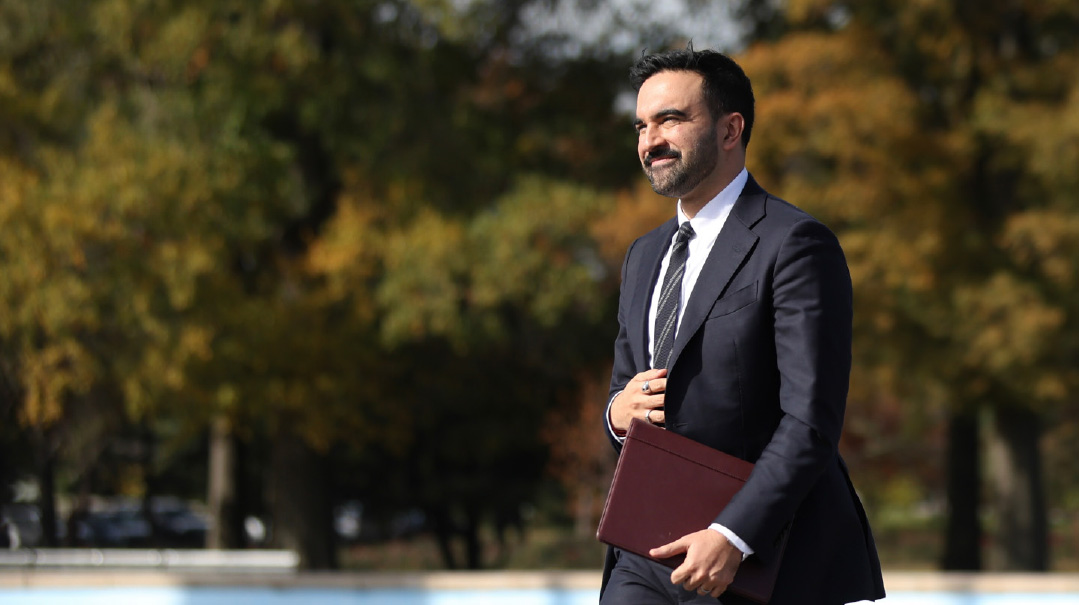The Veep Stakes

Two criteria help determine who will be VP: the front-runner’s orbit, and vote-getting
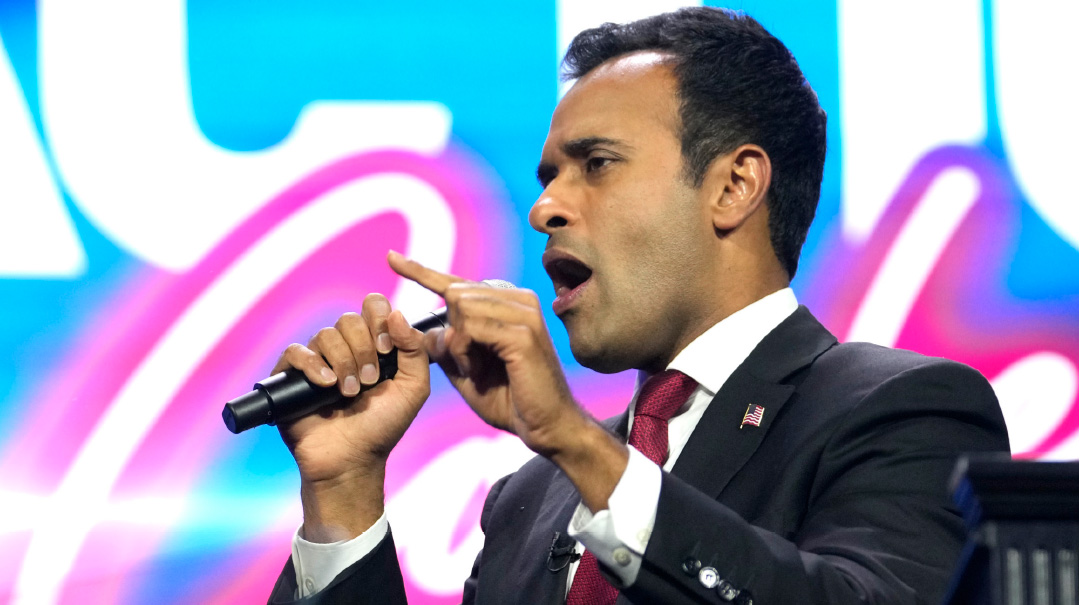
Photo: AP Images
W
hile all eyes are on the 2024 presidential race, many of the current candidates, on both sides of the aisle, have something else on their minds: the race for “veep,” as the vice president (VP) is known. Struggling candidates — their poll numbers aren’t moving, they’re running out of money, or the media’s ignoring them — are jostling for the other spot on the ticket, as a VP pick. A good pick can bring in votes and campaign dollars, and provide the boost of a powerful additional mouthpiece.
On its face, the vice presidency doesn’t sound like such a great gig. The Constitution limits its power to replacing the president and presiding over the Senate to cast tie-breaking votes. The very first VP, John Adams, described the position to his wife Abigail as follows: “My country has in its wisdom contrived for me the most insignificant office that ever the invention of man contrived, or his imagination conceived.”
Adams wasn’t complaining when the platform enabled him to succeed George Washington as the nation’s second president. In all, 15 VPs went from “the most insignificant office” to the most powerful. It can be a valuable prize.
But that’s only if you win. Being vice president on a losing ticket is a lousy prize. Ask Sarah Palin, Joe Lieberman, and John Edwards how easy it is to grab your party’s nomination after failing as the number-two. Still, the chance to rise higher makes the veep stakes a political gamble worth taking.
Two criteria help determine who will be VP: the front-runner’s orbit, and vote-getting.
Front-runner’s Orbit
One critical factor a front-runner considers when selecting a VP is whether the candidate can orbit. Think of the VP as the moon to the president’s earth. A vice president should be able to coexist with the president in a complementary relationship for four or eight years.
President Biden is the presumed Democratic nominee. Kamala Harris wasn’t Biden’s first pick for VP in 2020 because of the attacks she had leveled at him in the debates, but their working relationship grew and she is now a loyal administration voice. Nevertheless, low polling numbers have followed Harris for three years. Speculation that she would be dropped in the second term was rampant, due to Biden’s age and fears that the GOP would paint Harris as a liability. Despite this, Harris has spent the last year improving her image, and she is again squarely in Biden’s orbit, and will likely be asked to resume the VP role for another four years.
In the GOP, Trump remains the front-runner. He is looking for VP candidates who haven’t antagonized him and can orbit his tremendous personality. Vivek Ramaswamy is a perfect example. An entrepreneur turned long-shot presidential candidate, Ramaswamy has made it his business to praise and defend Trump, seemingly quietly vying for the position. It’s no surprise that Trump mentioned Vivek proactively as a VP candidate.
But what if Mike Pence or Ron DeSantis or one of the other dozen candidates emerges as the front-runner? We must watch the attacks they lob at each other, as well as praise, to understand who best meshes with whom.
The Vote-getter
In 1952, Dwight Eisenhower was running for president at the height of his popularity. A young California senator named Richard Nixon had achieved considerable fame for his investigations into Communist activities. Eisenhower selected Nixon as his VP because of his potential to generate votes.
Months later, Eisenhower regretted the decision; controversial stories emerged about Nixon and his character. As Eisenhower’s second term neared, he again pondered his selection, but ultimately went again with Nixon. The ability to help deliver California and keep hard-line Republican conservatives happy proved invaluable.
A vote-getter is a valuable vice-presidential pick. For example, does Miami mayor Francis Suarez help galvanize the key Hispanic vote in Florida? Does North Carolina’s Nikki Haley, the only female GOP candidate, help pick up women voters and solidify the South? The eventual GOP nominee will confront such questions.
The current presidential field is the most likely garden from which to pluck a VP, but a current governor or senator who isn’t running might have the vote-getting power and compatibility with a front-runner to solve the formula. As the presidential field winnows down to a clear front-runner, the likely VP nod will become obvious.
Who’s Ireland’s Favorite Son?
“We’re going to light up the White House in green... to celebrate the deep, deep affection that we Americans have, particularly Irish Americans have, for Ireland and the people of Ireland.”
—President Biden’s remarks to Irish prime minister Micheál Martin on March 17, 2021
President Biden frequently mentions his Irish heritage, quotes Irish poets, and jokes about his connection to the Emerald Isle. This made me wonder: Do the Irish claim Biden?
I recently visited Ireland and asked cabbies, a hotel concierge, and the “man on the street” whether they thought of Biden as one of their own. They unanimously did not. They didn’t have a negative opinion of him; but neither did they brag about the relationship. I then asked if John F. Kennedy had more of an Irish heart, and they again demurred. Then who?
I would find the answer on a rest stop in the town of Moneygall, between Dublin and Limerick. There you can find Barack Obama Plaza, a tribute to the former president. Again and again, the Irish mentioned how proud they were that Obama’s great-great-great-grandfather had come from Ireland.
Obama toured Ireland in 2011 and gave a speech in Moneygall that included this great line: “My name is Barack Obama, of the Moneygall Obamas, and I’ve come home to find the apostrophe we lost somewhere along the way.”
It was another example of Obama’s star power and of how his former vice president is still seen only as a satellite.
$100 billion
Bloomberg News identified this as the amount of wealth migration from the Northeast to the South. Florida and Texas now contribute more to the national GDP than New York and Massachusetts.
Politicians in blue states must be paying attention to this migration. New York’s tax revenue is down 20%, while California faces a projected $32 billion deficit.
When I was in Albany and Sacramento over the past few months, I was asked if a similar migration is occurring in our community as well. I pointed to higher property taxes and lack of school choice as primary drivers.
Imagine politicians viewing their constituents as customers they could lose or gain, depending on their policies. They may now have 100 billion reasons to start behaving like that.
(Originally featured in Mishpacha, Issue 971)
Oops! We could not locate your form.


